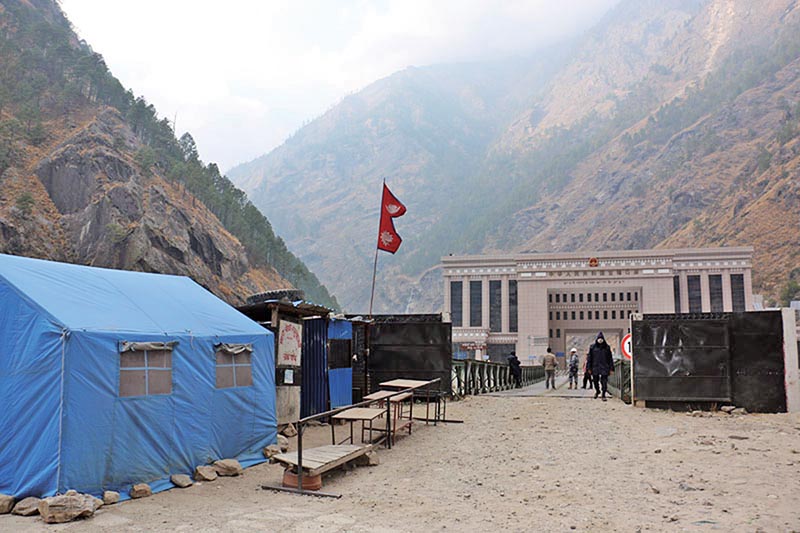Rasuwagadhi border shut over coronavirus threat
Kathmandu, January 29
Rasuwagadhi border was closed today for 15 days to prevent the spread of coronavirus after a rise in the number of infections in China.
“The border has been closed to prevent people infected with coronavirus from entering Nepal,” said Kedar Nath Sharma, spokesperson for the Ministry of Home Affairs.
China has confirmed 132 deaths due to coronavirus infection. Till today, 5,974 confirmed cases of the infection have been reported in China. Hubei province capital Wuhan, where the outbreak began, is on a lockdown.
Meanwhile, a 20-year-old student, who recently returned from China, was admitted to Sukraraj Tropical and Infectious Disease Hospital, Teku, today.
“The person has been admitted to the hospital as he is suffering from fever and respiratory illness,” said Dr Anup Bastola, a tropical medicine consultant and spokesperson for Sukraraj Tropical and Infectious Disease Hospital.
With a confirmed case of coronavirus infection in the capital and a number of people visiting Sukraraj Tropical and Infectious Disease Hospital with suspected coronavirus infection, the hospital has set aside one ward for suspected cases of coronavirus infection.
“We have set aside over 30 beds in one of our wards for coronavirus suspected patients. Those returning from China with symptoms of fever and respiratory illnesses will be kept there,” said Dr Bastola.
Private hospitals in the capital have also been receiving suspected cases of coronavirus infection. National Public Health Laboratory has received two samples of suspected coronavirus infection from private hospitals in Kathmandu, according to Mahendra Shrestha, spokesperson for the Ministry of Health and Population.
According to the health ministry, it has designated Patan Hospital, Civil Service Hospital, Birendra Military Hospital, Bir Hospital, Bhaktapur Hospital, Tribhuvan University Teaching Hospital and 13 other hospitals to help treat patients with coronavirus infection.
Cases of coronavirus infection, known as 2019-nCoV, have also been reported in Japan, Thailand, South Korea, the United States, Australia, France, Malaysia, Cambodia, Canada, Sri Lanka, Singapore, Vietnam, Hong Kong, Macau, Taiwan and Germany.
As the disease is spread through human-to-human contact, doctors have suggested that people should always clean hands with soap and water and cover nose and mouth while coughing or sneezing.
They have also advised people to avoid close contact with anyone with cold or flu-like symptoms, besides thoroughly cooking meat and eggs.
READ ALSO:






